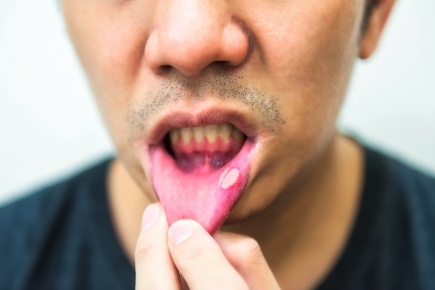Inflammatory bowel diseases (IBD), are a group of autoimmune diseases that result in chronic inflammation in the gastrointestinal (GI) tract. The two main diseases identified in this group are Crohn’s Disease and Ulcerative Colitis. The resulting symptoms are painful due to chronic inflammation, eventually damaging the GI tract.
Both diseases must be diagnosed by a physician and affect the body differently. Crohn’s disease can occur anywhere along the GI tract, from the mouth to the anus. The most common area targeted is in the small intestine, just before the colon (ileum). Inflammation may reach through multiple wall layers within the intestine. The areas affected show up as patches of irritation next to healthy tissue.

Ulcerative Colitis is localized to the colon and rectum. Unlike the patchy areas seen in Crohn’s, the damaged areas in Colitis are seen continuously, typically moving upward from the rectum to the colon. As opposed to affecting multiple layers, Colitis is also only found in the innermost wall of the colon.
Like most autoimmune diseases, the etiology of IBD is not well known. Likely causes, as found through research, point toward environmental and genetic factors. The result is an immune response that when triggered by environmental factors attacks the cells in the GI tract. The symptoms of IBD are similar between both Crohn’s and Colitis and can be misdiagnosed.
Symptoms:
-Persistent diarrhea
-Abdominal pain
-Rectal bleeding/bloody stools
-Weight loss
-Fatigue
While sharing some similarities in symptoms, IDB is not to be confused with IBS or Celiac disease. IBD affects the body in different ways and it’s important to seek a physician for a correct diagnosis and treatment, in order to avoid misdiagnosis.
Now that we know how IBD works, how can it affect our oral health? IBD can have several oral manifestations:
-Xerostomia (Dry Mouth): The salivary glands do not produce enough saliva to keep the mouth moist.This disrupts the pH balance of the oral cavity and can result in rampant decay.
-Aphthous Ulcers (also known as canker sores): Individuals with IBD may present with frequent or multiple ulcers. These lesions can make oral care uncomfortable.
–Mucosal Tags: Similar to skin tags, these can be seen as a result of Crohn’s Disease. They may appear on the inner cheek and can be visualized by your dentist or hygienist.
-Gingivitis: Reversible form of periodontal disease, is treated with good home care and professional hygiene visits.
Your doctor and hygienist will tailor a treatment plan that best suits your needs, depending on which manifestations you’re experiencing. For example, if you’re experiencing frequent aphthous ulcers, you may be prescribed a steroid cream to decrease length and frequency. Or, if you suffer from xerostomia, we’ll discuss options to balance pH and decrease your risk for decay. As with all autoimmune diseases, the healthier we can keep our mouth, the less effect it will have on our immune response. Please let us know at your next visit if you would like to discuss the impact your IBD may be having on your oral health!
References
